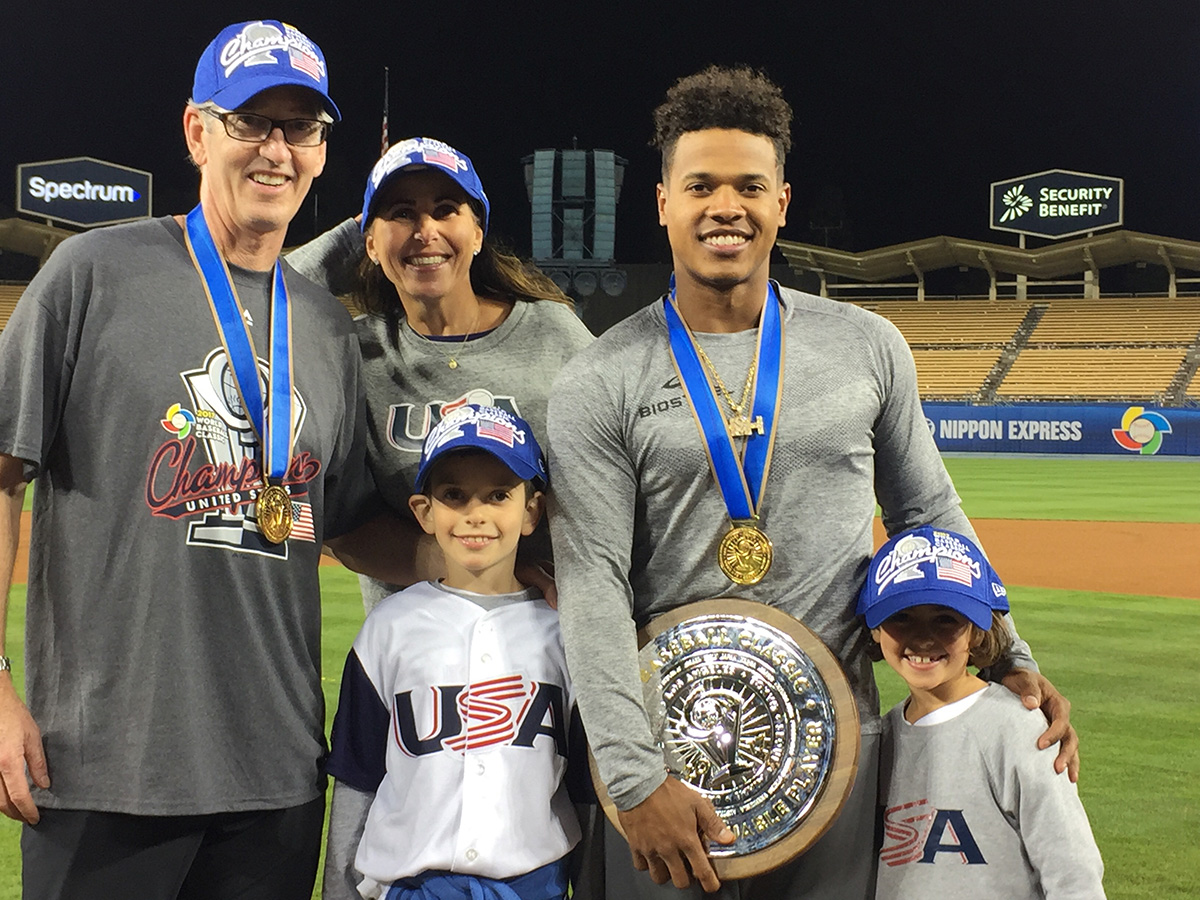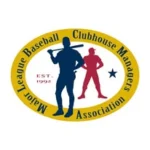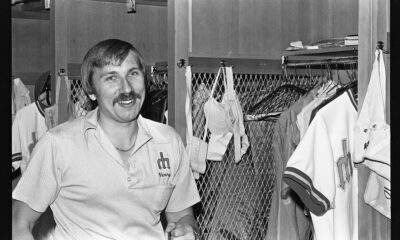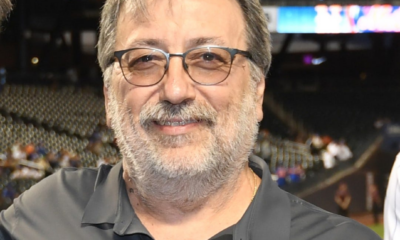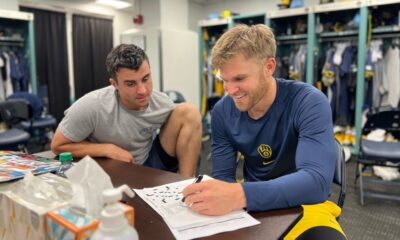Most people don’t land their first job and end up at the Super Bowl. But Ted Walsh isn’t most people. Ted Walsh spent over three decades operating behind the scenes as one of the most respected clubhouse and equipment managers in both the NFL and Major League Baseball. His path was anything but traditional, but it was paved with loyalty, grit, and a deep love for the game.
Walsh was all set to attend St. Mary’s College when an unexpected opportunity threw a curveball his way. “I already applied to college. I already got accepted,” he remembered. “But the equipment manager asked if I’d work during the regular season. I talked it over with my parents—my mom was freaking out—but my dad said, ‘Yeah, give it a shot for one year.’ So, I did it that season.” That first year turned into a Super Bowl run with the 49ers—and the beginning of a long and storied career.
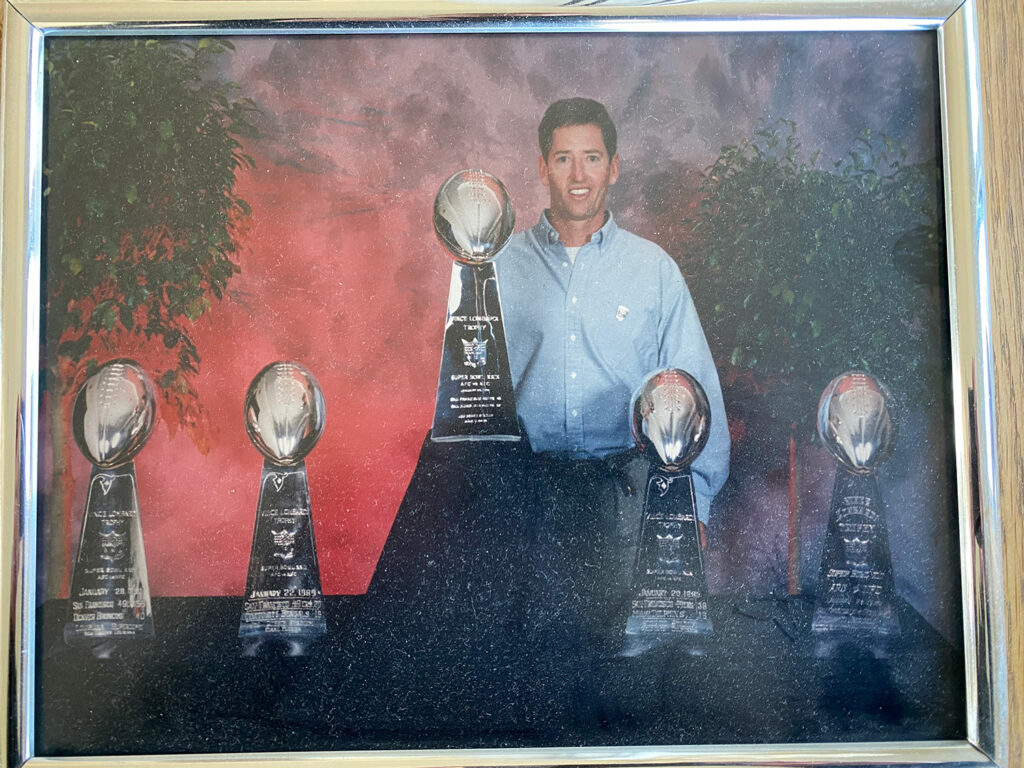
Spring Training and a Second Passion
By 1982, Walsh was balancing two professional sports seasons, working with the Milwaukee Brewers during NFL off-seasons. “That started a thing where for the next five years, from ’82 through ’86, as soon as football season was over, I’d go work in the clubhouse with the Brewers.” It was during this time that he built lasting relationships—like with Tony Migliaccio—and got his first taste of clubhouse culture in baseball.
By 1986, the NFL expanded its staffing, and Walsh became a full-time equipment manager with the 49ers—a role he held for another ten years. “Started in ’79, last season was ’96,” he said. “But I always kept my eye on baseball, thinking if one of those head clubhouse jobs ever opened up, I’d throw my name in.”
In 1996, during the NFL season, he got the chance to interview for a full-time role in baseball. “We were in New Orleans for a game, and I flew to Cleveland to interview with the Indians. Before I even left, Mike Hargrove said, ‘The job is yours if you want it.’”
Coming Home to Seattle
After six years with the Indians, from 1997 to 2002—including a trip to the World Series in his first season—Walsh made a move to get closer to family. He landed in Seattle as the Mariners’ home clubhouse manager in 2003. “I just felt like it got me back to the West Coast, closer to home,” he said. He stayed there until 2015, spending his last three years on the visiting side to avoid the heavier travel schedule while raising a family.
Football vs. Baseball: A Culture Shift
The transition from the NFL to MLB brought some surprising differences. “In football, you lose and people walk around in a funk for days,” he said. “In baseball, you lose Opening Day and the manager just claps his hands and says, ‘Get ‘em tomorrow, guys!’”
He also noted how the two sports handle team dynamics. “Jerry Rice didn’t even know some of the defensive linemen on our team. In football, offense and defense barely interact. In baseball, you know everyone. You’re around each other constantly.”
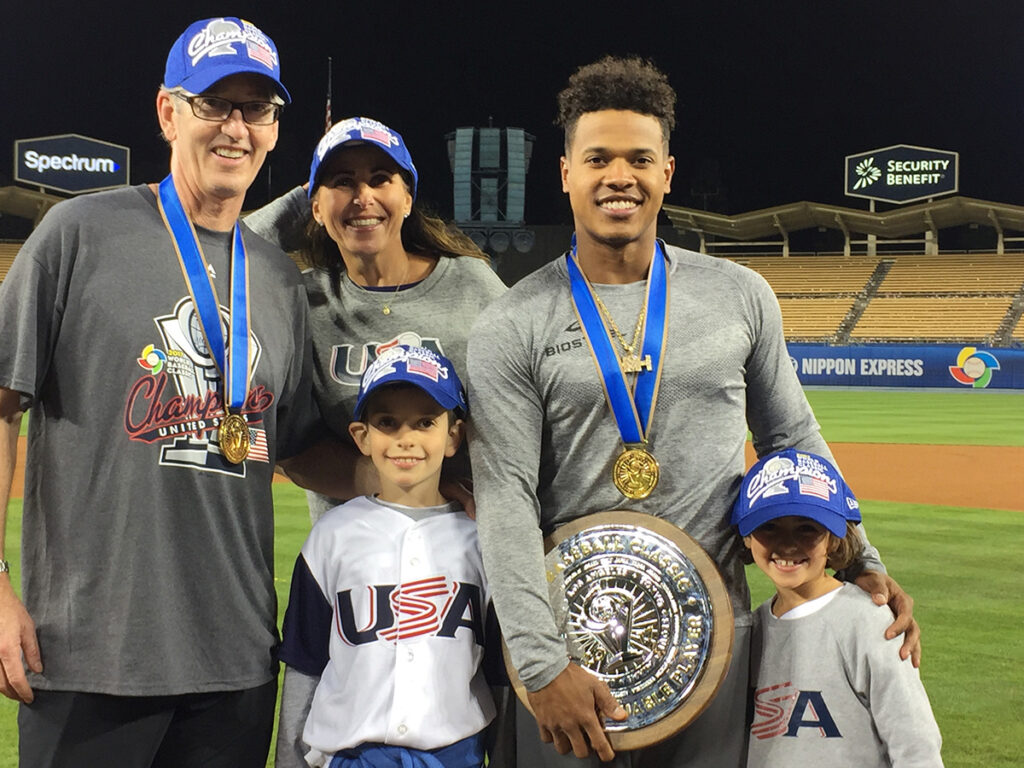
The Greats Work Harder
Over the years, Walsh saw firsthand that talent alone wasn’t what separated the good from the great. “Your best players were often your hardest workers,” he said. “Ichiro hadn’t taken a day off from baseball since he was seven. Jerry Rice was running sprints three days after winning the Super Bowl.”
The takeaway? “If you’ve got talent and the work ethic to match, that’s when something special happens.”
A Championship Run with Team USA
Even after stepping away from full-time baseball, Walsh returned to the clubhouse one last time in 2017 to manage Team USA’s gear and logistics during the World Baseball Classic. “It was like three game sevens in a row,” he said. “All hands on deck. Everybody was locked in.”
After the final win over Puerto Rico, Jim Leyland gave a speech, champagne flew, and Walsh was back to work a few hours later—coordinating FedEx shipments from a hotel ballroom at 5 A.M. “No parade. Just a lot of packing.”
Lessons from a Life in Sports
Running a swim and tennis club now in Santa Rosa, California, Walsh reflects often on the pace and intensity of life in pro sports. “Everything happens fast. You’re not in the real world. You get used to that level of service—people jump when you need something,” he said. “Now? The Pepsi guy comes next week.”
And for anyone hoping to follow in his footsteps? Be ready to work—and work a lot. “Start at the bottom. Cleaning shoes. Picking up dirty laundry. Long hours. Sometimes 18-hour days,” he said. “You’ve got to take your lumps.”
It’s definitely not for everyone—but for the right kind of person, it’s a front-row seat to something unforgettable.

Clubhouse Manager of the Year

Tom McLaughlin Boston Red Sox Home Clubhouse Manager of the Year
Clubhouse Manager of the Year
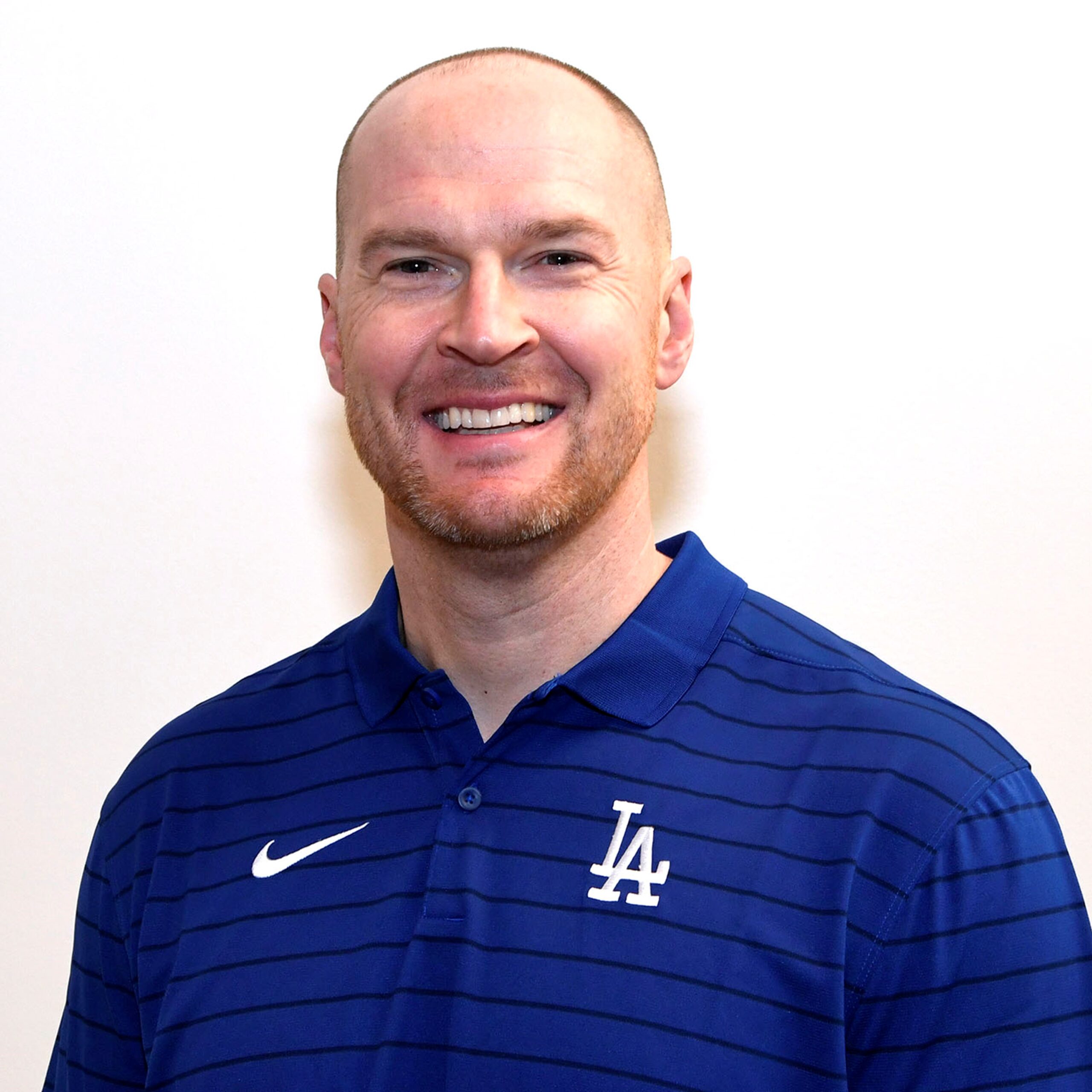
Troy Timney Los Angeles Dodgers Visiting Clubhouse Manager of the Year
